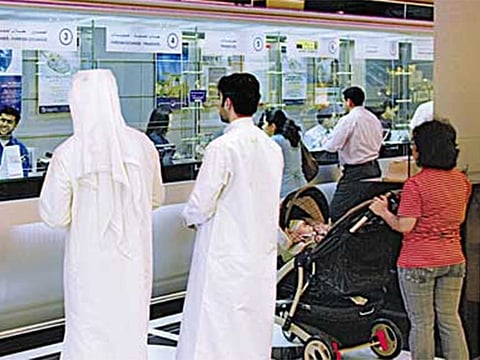Top 3 countries that receive highest remittances from UAE, rest of the world
New report identifies top three beneficiaries of money sent home by expats in UAE, rest of the world

Dubai: Families and dependents in Asia remain the biggest beneficiaries of money sent home by expatriates working in the UAE and around the world, with India, China, Philippines and Pakistan emerging in the top five biggest recipients of remittances in 2016.
Foreign workers from Asian countries constitute a huge part of the expat population in the UAE, considered to be one of the major sources of global remittances. They’re among the 200 million expats that support some 800 million family members around the world.
A new report out this month from the United Nations International Fund for Agricultural Development (IFAD) showed that India took home the crown as the top-receiving country for earnings made by migrants, recording a total of $62.7 billion (Dh230 billion) in wire transfers from abroad.
Chinese dependents and families received the second-highest amount of money sent home by expats at $61 billion, followed by Filipinos ($29.9 billion), Mexicans (28.5 billion) and Pakistanis ($19.8 billion).
The report clearly illustrates that Asian expats are the biggest sources of funds that provide much –needed support to dependent families and individuals.
Exchange houses have reported that money flows from the UAE continued to increase in 2016 amid sluggish economic growth and weak oil prices, with the volume of outgoing cash transfers increasing by 10 per cent to 12 per cent last year compared to 2015. India emerged as the number one beneficiary of funds sent by expats from the UAE. The total amount of cash sent from the UAE is estimated to reach around Dh70 billion annually.
The money sent home by expats is usually used by their dependents to buy food, medicines or pay for school expenses and better housing.
“This money is spent on food, health care, better educational opportunities and improved housing and sanitation. Remittances are therefore critical to help developing countries achieve the sustainable development goals,” said Pedro de Vasconcelos, manager of IFAD's financing facility for remittances and lead author of the report.
According to the IFAD report, the amount of money sent by expatriates to their dependents in Asia and the Pacific ballooned by 87 per cent over the past ten years, reaching $244 billion.
Gilbert Houngbo, IFAD chief, noted that the earnings shared by expats to their dependents back home have indeed made a difference in other people’s lives.
“It is not about the money being sent home, it is about the impact on people’s lives. The small amounts of $200 or $300 that each migrant sends home make up about 60 per cent of the family’s household income, and this makes an enormous difference in their lives and the communities in which they live,” said Houngbo.
Where remittances go: Top recipients of money transfers in 2016 (US$ billion)
1.India: 62.7
2.China: 61
3. Philippines 29.9
4. Mexico: 28.5
5. Pakistan: 19.8
6. Nigeria: 19
7. Egypt: 16.6
8. Bangladesh: 13.7
9. Guatamela: 7.4
10. Lebanon: 7.3
Source:: IFAD
Sign up for the Daily Briefing
Get the latest news and updates straight to your inbox



